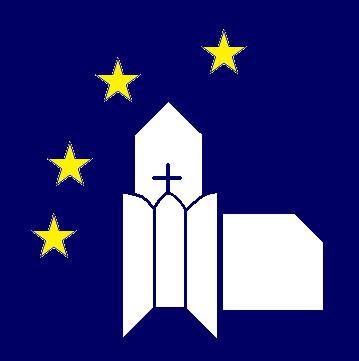From 6th to 8th September 2019, in Madrid, we celebrated the 39th Madrid Theology Congress on the theme "Justice and Compassion in an Unequal World" with the collaboration of female and male sociologists, theologians and social activists, who guided the reflections of the 400 people from all continents present with the participation of the Intercultural Concert of the musical group Voces de Ida y Vuelta, the Eucharist for sharing bread and words, led by the FELGTB's Faith and Spirituality Group and a solidarity collection for the most disadvantaged groups.
1. We have carried out a critical analysis of reality, in which we have discovered the following phenomena: the war against life and against natural resources, social labour rights and social ties; the economic crisis due to neoliberalism; the care crisis, which especially affects women; corruption as a form of structural government; the sacrificial logic of capitalism; territorial and social fascism; the ecological crisis, which is the main challenge facing humanity, the most important expression of which is the destruction of the Amazon.
2. We have also witnessed racism and xenophobia against people who come to the most favoured countries, fleeing war, misery and dictatorial regimes and facing growing inequalities on the grounds of gender, ethnicity, culture, religion, sexual identity and social class; attacks on the dignity of the most vulnerable people in society, such as paedophilia within church institutions with the silence, concealment and complicity of high-ranking officials; prejudice against non heterosexual people, often encouraged by homophobic religious discourse; sexism, encouraged by Church condemnations against what is called "gender ideology"; and the deterioration of the orientation of groups.
3. We have heard hopeful experiences that attempt to respond to the unequal and structurally unfair world with alternative proposals such as the social inclusion of other capacities, the movement of young Europeans against climate change and the solidarity of the Community of San Carlos Borromeo with migrants, refugees, asylum seekers, the homeless and marginalized women.
4. We have proposed the ethical-political response of social movements that place ethics at the centre, have as their horizon the struggle for justice and the practice of compassion and defend feminist ecosocialism as an alternative to the global ecological catastrophe of capitalism and patriarchy.
5. We very positively appreciate Pope Francis's criticism of the current unfair economic model in its root and generator of overpopulation, the protection of the Communal House in the encyclical Laudato Sí' and the convening of the Synod on Amazonia.
6. Compassion is the principle of humanity. Without it, there is no human life, but the war of all against all. It is necessary to have compassion for nature and for our fellow human beings in order to fight eco-human suffering.
7. Compassion is God's fundamental option in the face of human suffering and the exploitation of nature, the fundamental option of Jesus of Nazareth in solidarity with victims, and the principle of any theology in solidarity with the pain of innocent people. It is one of the fundamental principles of all religions and spiritualities: prophetic, mystical, wise, indigenous and of African origin.
8. Compassion cannot just be a feeling of sadness or pity, but must be translated into political and social measures that generate justice in its various dimensions: social justice, compassionate justice, gender justice, eco-feminist justice, cognitive justice, decolonization, structural justice.
9. We believe it is necessary to read the Bible from a feminist perspective, to discover its intercultural character, to search for its Afro-Asian roots, to deconstruct the gender-based violence that is present there, to rediscover women's genealogy, to recognize their role as protagonists of struggles and resistances, to learn from compassionate women, who bring light and utopias and examples of tenderness and justice.
10. We must learn to live well with little; to look beyond appearances with an inclusive perspective; to share the world's pain from silence and justice; to globalize solidarity; to welcome lost lives; to regain tenderness as a political basis; to lead a genuine spiritual revolution; to live an interspirituality in favour of justice, peace and concern for human life and nature; to "democratize democracy"; to revise the concept of liberal freedom, which must be inspired by the concepts of equality and justice; that of security, which consists in ensuring healthy eco-human conditions; that of heroism, which consists in defending life; that of attention to be shared between men and women; that of overcoming the patriarchal logic of war; that of creating cooperative habits; that of creating "citizen parliaments"; that of creating social spaces where we can be comfortable; that of defending the causes of indigenous people, peasants and people of African origin as well as our own.
11. We are in solidarity with the camp for the homeless who live in tents on the Paseo del Prado and Paseo de la Castellana avenues in Madrid.
12. We consider ourselves as followers of Liberation Christianity as an event of particular historical importance, which has created a new eco-fraternity-sorority between Mother Earth, the Christian revolutionary people and atheists or agnostics. Faithful to this Christianity, we commit ourselves to leading a global evangelical, ethical, political, economic and cultural rebellion against the different systems of domination: capitalism, colonialism, patriarchy, fundamentalism, xenophobia and anthropocentrism, predatory of nature, with our eyes fixed on the utopia of another possible world, where justice and compassion are the moral principles that guide our existence.
Madrid, 8th September 2019
Translated with www.DeepL.com/Translator and edited by Hugo Castelli Eyre
